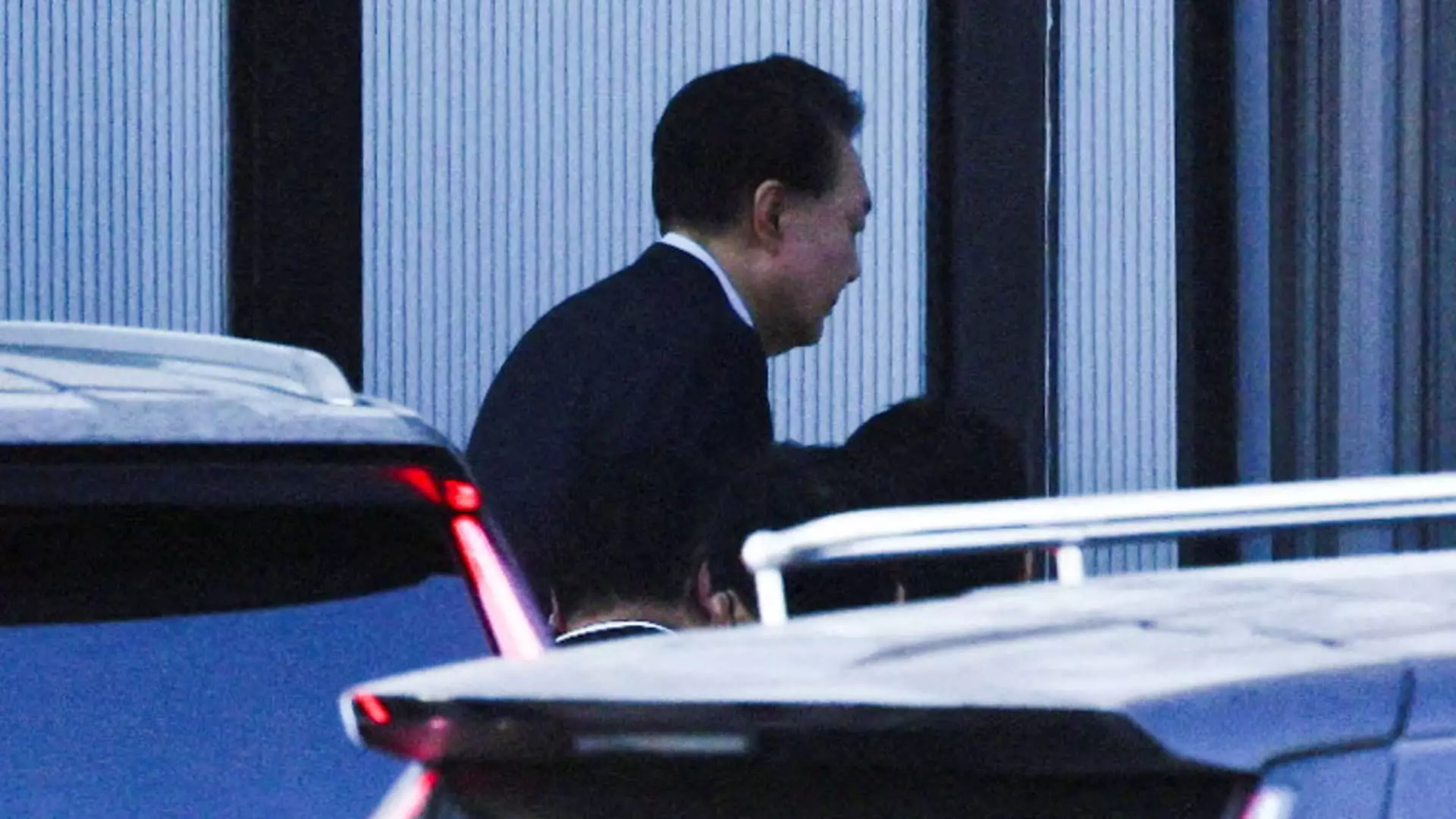The political landscape in South Korea has dramatically shifted in recent days following the unprecedented impeachment of President Yoon Suk Yeol, who has now become the first sitting president in the nation’s history to be arrested. On Saturday, Yoon attended a court hearing designed to consider a request from investigators to extend his detention amid serious allegations of insurrection. This recent turn of events reflects deeper issues regarding governance, law, and the delicate balance of power within the South Korean political system.
Allegations of Insurrection and Martial Law
At the center of this political maelstrom are claims related to Yoon’s action on December 3, when he briefly declared martial law. The timing of this decision, which coincided with escalating protests and civil unrest, has raised significant concerns regarding his leadership capabilities and the potential abuse of power. Investigators, citing the gravity of the situation, have requested a detention warrant to extend Yoon’s custody by up to twenty days. It remains to be seen how these legal developments will impact public opinion and the political future of South Korea.
The Defense’s Position
Throughout the nearly five-hour hearing at Seoul Western District Court, Yoon’s legal representative emphasized his client’s commitment to defending his actions as legitimate and legally justified. According to his lawyer, Yoon Kab-keun, the president endeavored to “restore his honour” by clarifying his stance on emergency measures taken during a turbulent time. The defense aims to present a robust case highlighting the legal principles involved and arguing against the establishment of any insurrection.
The court proceedings have not only revealed the inner workings of South Korea’s legal system but have also ignited a wave of public sentiment. Despite Yoon’s arrest, thousands of supporters gathered outside the courthouse, rallying behind their embattled leader and chanting slogans demanding his release. This demonstration symbolizes a significant divide in public perception, as many citizens continue to support Yoon, emphasizing principles of rule of law and governmental integrity. The stark contrast in perspectives regarding Yoon’s conduct showcases the polarization present in South Korea’s current political climate.
One notable aspect of these allegations is the nature of the crime itself. Insurrection is a rare charge that does not afford immunity to South Korean presidents who find themselves in legal trouble. This particular detail complicates the implications of Yoon’s case, as it raises important questions about accountability for those in power. The outcome of this case could set a pivotal precedent, influencing both future legal actions against political figures and the public’s trust in the government’s institutions.
As South Korea waits for the court’s decision, expected soon, the future of President Yoon and the implications for the nation hang in the balance. Will the court uphold his defenses, or will it lead to further legal troubles that could destabilize the current administration? This situation has sparked widespread speculation and debate, revealing the intricate interplay between law, politics, and public opinion in South Korea. With both domestic and international eyes keenly observing these developments, the repercussions of this historic case will undoubtedly resonate long after the final verdict is delivered.


Leave a Reply